Revitalization of Confucian Culture in Nonsan: Exploring Korea’s Heritage and Traditions
- Jetta Allen

- Aug 15, 2024
- 4 min read


Discovering Nonsan: A City of Nature and Culture
An hour and a half south of Pyeongtaek, or two hours west of Daegu, is the city of Nonsan. Filled with endless beauty from nature, cultural history, and agricultural development, it’s no surprise that Nonsan is on everyone’s list of must-visit places! The picturesque rolling hills, small lakes, tall pine trees, and the many farms make the city life slowly fade from view. You can relax, smell the fresh air, slip your shoes off, and walk through the lushest grass.

Confucianism’s Influence on Korean Culture and Society
One can’t help but wonder if Nonsan’s culture of Confucianism is part of what makes it a place of respite. Confucianism is a belief system brought to Korea by the Chinese. This belief system isn’t just a personal system, it is a belief system that has helped shape Korean history, government, society, justice, education and academics, and culture across the peninsula. Today the practices and beliefs of Confucianism are feared to be on a decline and a cultural awakening is happening across the peninsula with government-funded programs to support history, culture, and a variety of beliefs and religions.
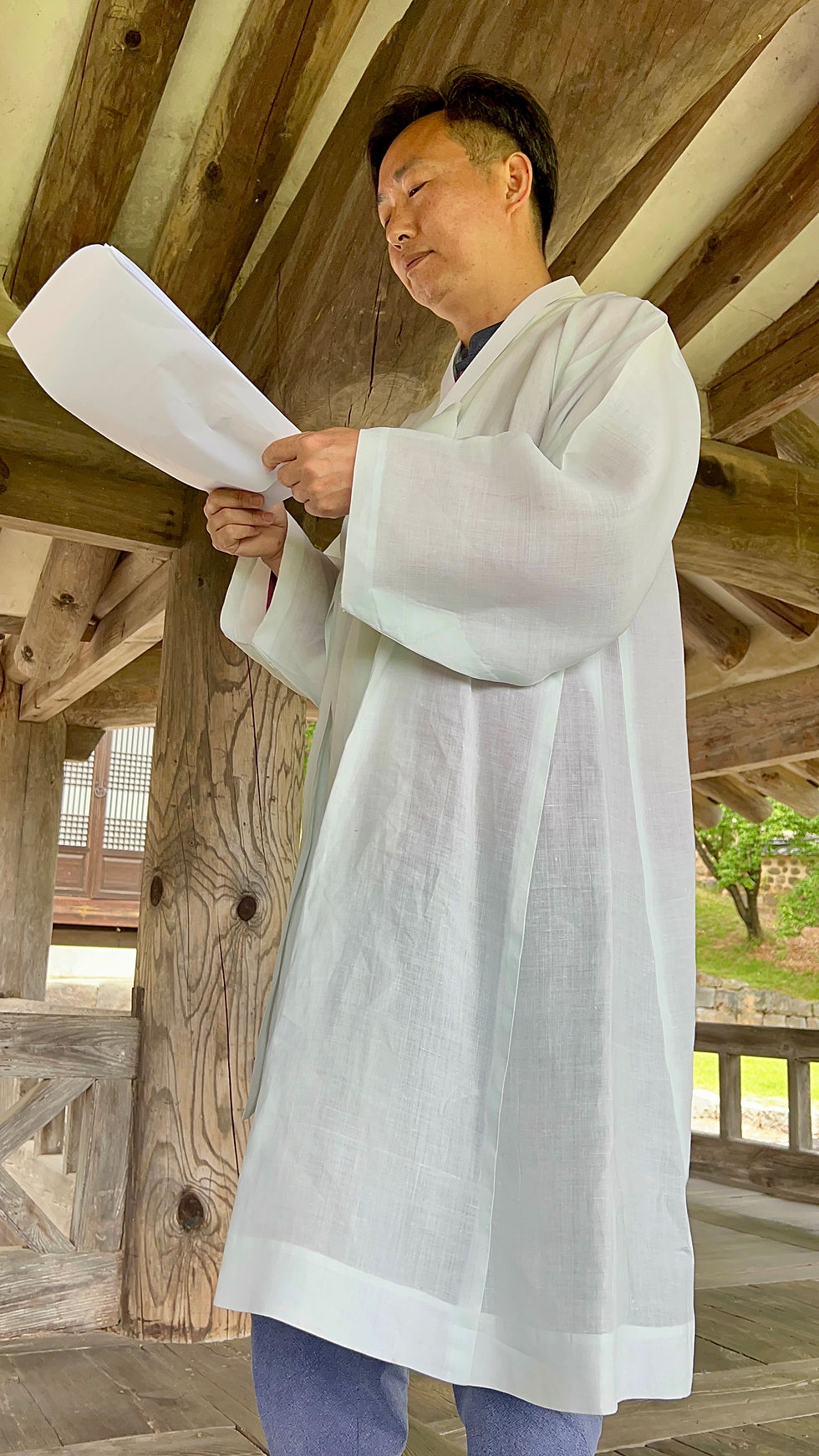
The Korea Confucian Culture Center in Nonsan
The Korea Confucian Culture Center in Nonsan is dedicated to revitalizing Confucianism in South Korea. The revitalization is possible by intentional programming sponsored by the government of Nonsan. Together, United States military families and other Korean families experience culture with a whole day of activities and learning.
The center is full of walkways, hanoks, traditional buildings, and a main complex building that hosts conference and auditorium rooms, libraries, exhibitions, a cafe, and a craft room.

Hands-On Confucian Arts and Activities
In the craft room, we learned about harmony and balance through Confucian art. Our family painted a pomegranate painting with butterflies, each component, deliberately placed and sized, in balance with the other.
The speakers discussed that through Confucianism and balance, inner peace and happiness can be found, and with inner peace, a community and society can be prosperous.
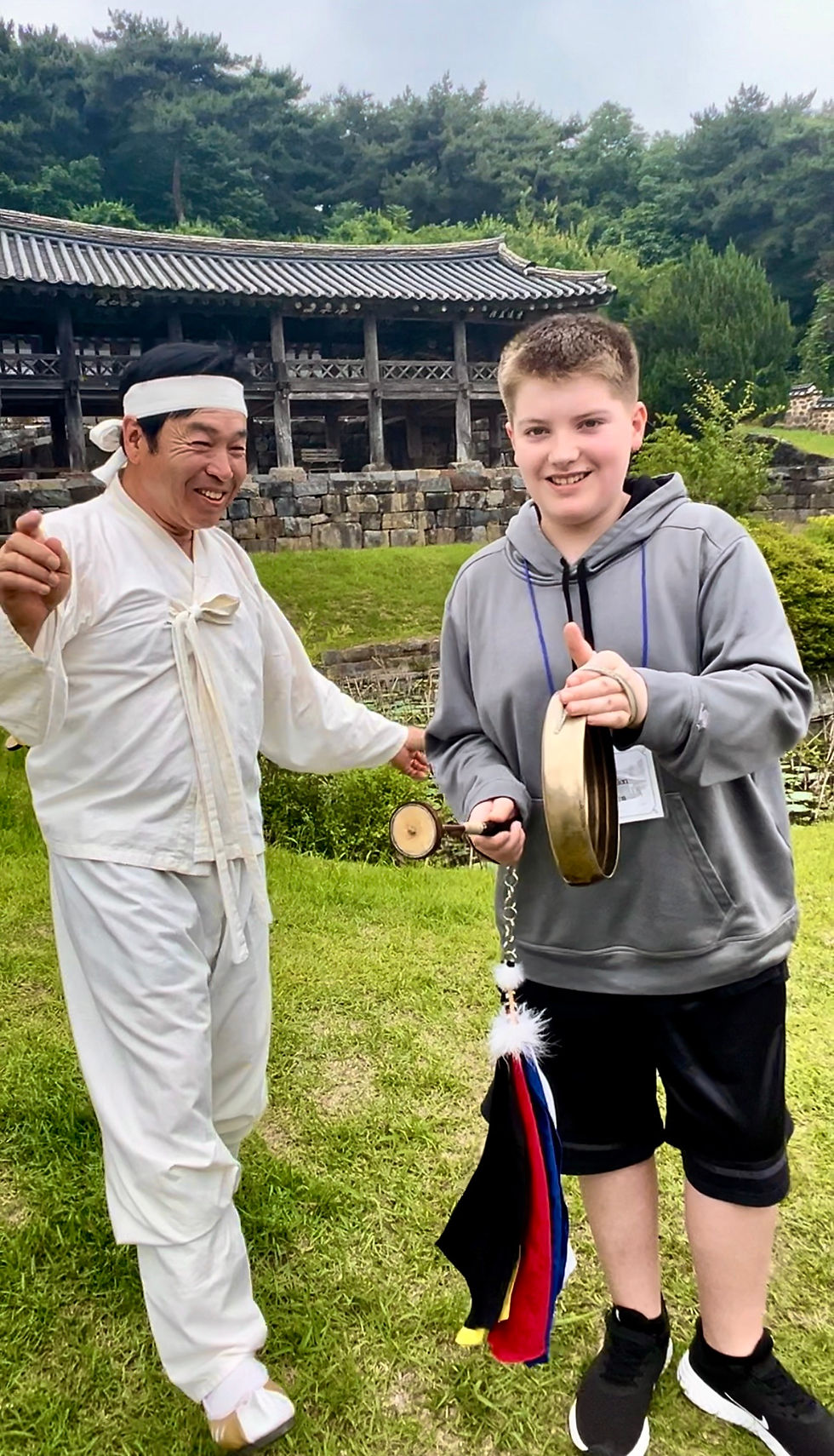
Jeongsulu Pavilion and the Jonghakdang Family School
Many activities took place across the grounds in a restored pavilion called “Jeongsulu”. This was the Jonghakdang Family School classroom originally built in the mid-1600s in Nonsan. The Jonghakdang Family School was based on Confucianism, academics, and rules with a strict emphasis on the education necessary to pass the state exam that was required for those to hold government roles during the Joseon dynasty.
The school was established by the Papyeong Yun clan (sometimes pronounced Yoon). Here members of the clan, as well as other families around the region of Nonsan, learned together. During the Joseon dynasty, the clan started to become an influential family, holding notable government and academic positions.

Confucian Education and Academic Tradition
One has to note that the rigorous curriculum and consistent rules were the main contributors to the clan’s rise to influence. Today an influential member of this clan includes the current President of South Korea, Yoon Seok-youl, the 35th generation of the Papyeong Yun clan.
The importance of academics and an appropriate education are recognized in Confucianism.
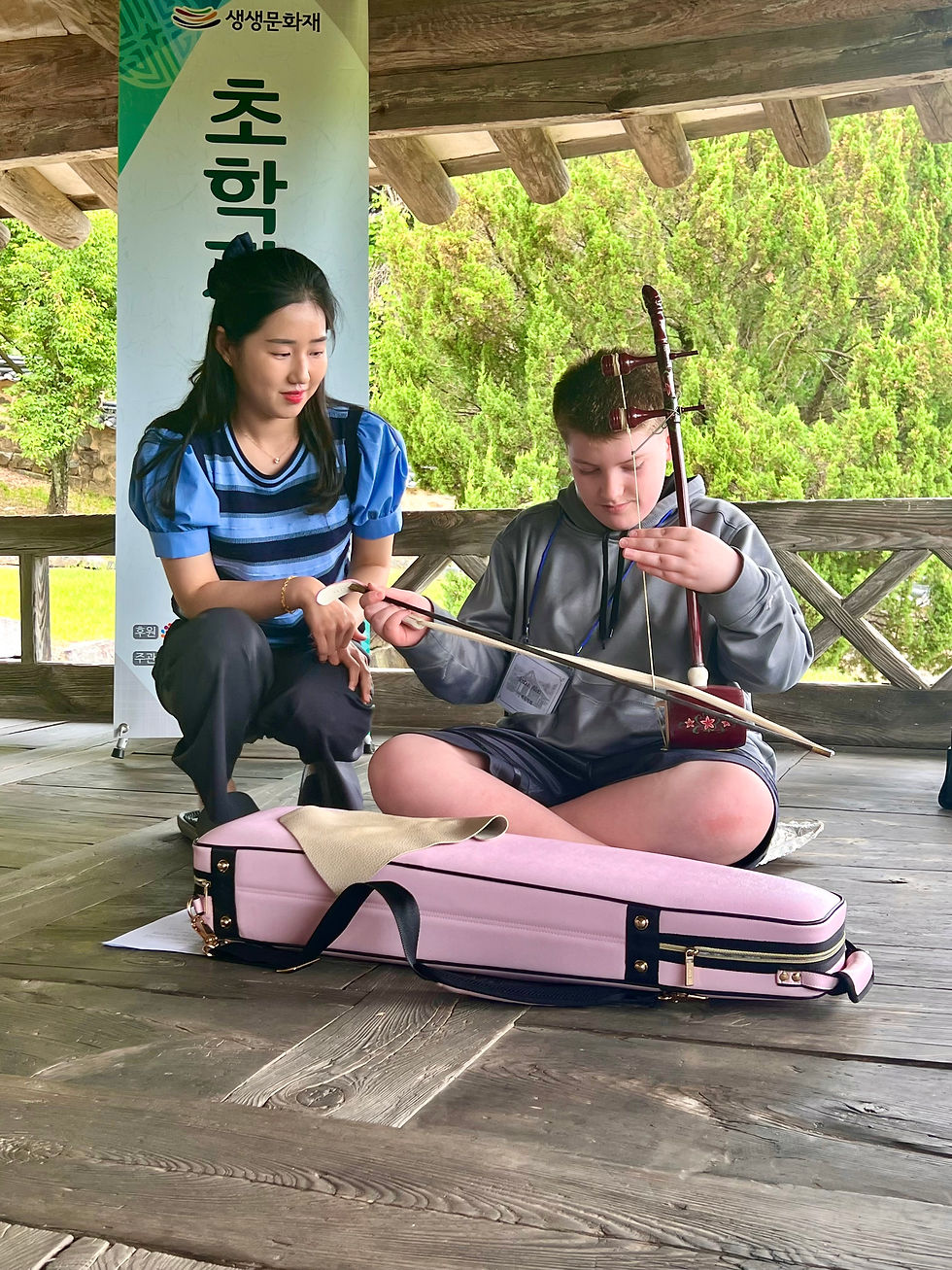
Learning Confucian Music: The Haegeum Experience
Today, Jeongsulu stands as an open-air classroom overlooking the Korea Confucian Culture Center and the hills of Nonsan. Here we learned Confucian songs that are more like poetry and how to play the haegeum. Our son enjoyed the sound of the haegeum being played and accepted the challenge to attempt to play the instrument.
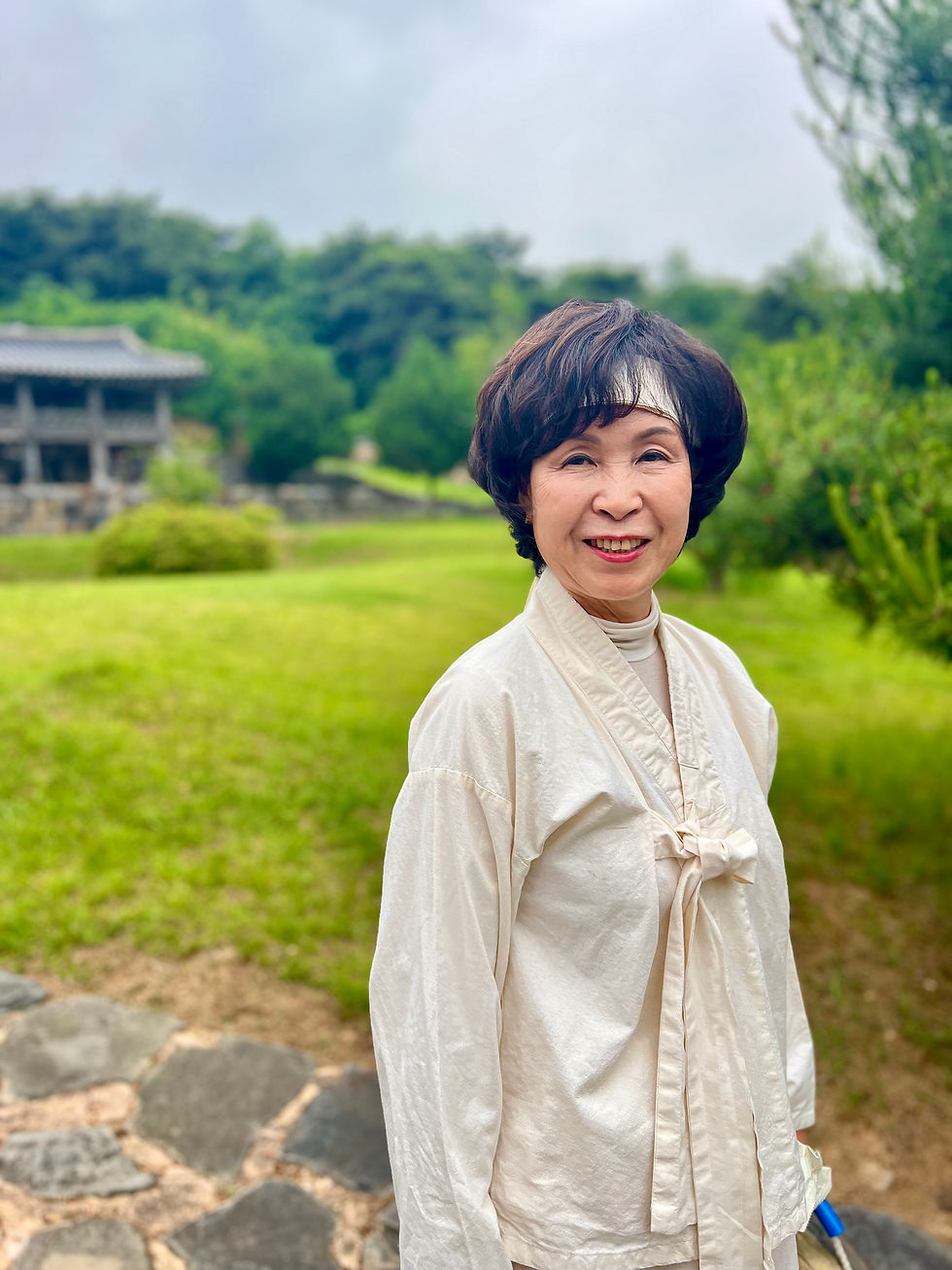
Practicing Confucian Calligraphy
In another hall, we practiced calligraphy with traditional paint brushes, an ink stone, and an ink stick. After practicing our calligraphy, we were given fans to create individual messages. As a group, we had many laughs as we created art together and as children explored the concepts of calligraphy. We had a few more laughs when the pitch-black ink seemed to get everywhere!
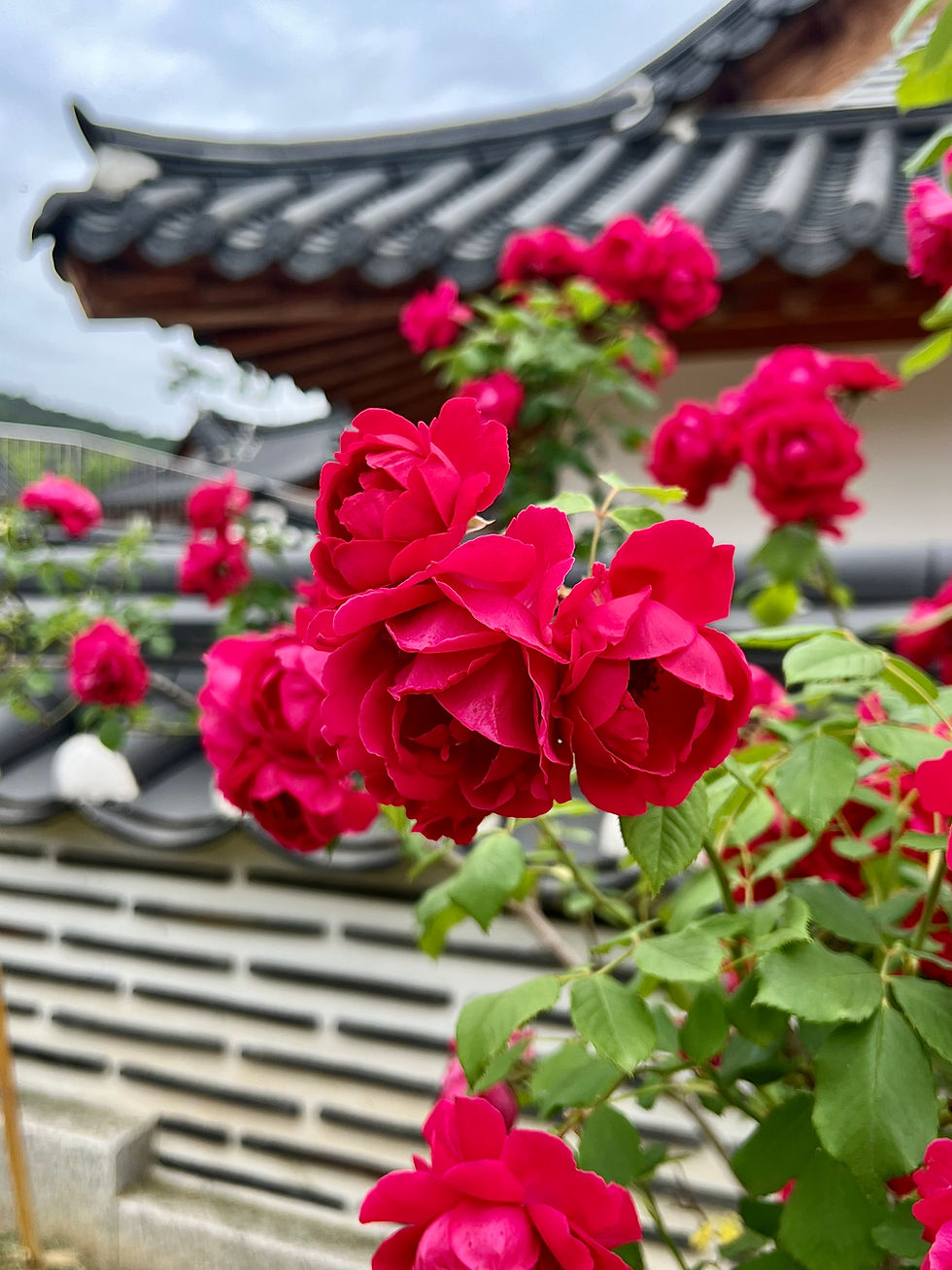
Confucian Gardens and Cultural Performances
Lastly, the group was led to the gardens on the grounds and given time to explore freely before heading back to the bus. My shoes came off as I purposefully and quietly walked around the grounds appreciating the beauty of nature. Other families were enjoying their children running and playing in the gardens. All of a sudden we heard music approaching!
Traditional Farmer’s Folk Band Performance
The farmer’s folk band could be heard hundreds of feet away walking up the trail. We looked on in amazement as the various instruments seemed to be played perfectly by the men and women. As the band began up the hill we saw a group of four men and two women playing four traditional instruments.

Why Visiting Nonsan Should Be on Your Korea Travel List
Our military lives often leave us stressed, worried about the future, and disconnected from our family and culture. This doesn’t mean we can’t embrace one another and join in with others to experience these special moments together! I implore all those stationed in Korea to get out and explore. Go anywhere, but get off your installation.
Put Nonsan on your Korean experience list. Go in summer for adventures, fall for the colors of the leaves turning, winter for the snowy hills, or visit in spring for strawberries and flower blossoms. It’s great at any time!

Resources
Haegeum at a Glance https://www.igbf.kr/DataFiles/App/PDF/haegeum_en_print.pdf
Korean Confucian Culture Center Website: https://www.ikcc.or.kr/en//0101/content/greeting_en/
Facebook: 한국유교문화진흥원 https://www.facebook.com/ikccofficial
IG: ikcc_official https://www.instagram.com/ikcc_official/
Open 09:00 ~ 18:00
Closed every Monday, every January 1st, New Year's Day, and Chuseok.
Admission: Free
Address: Korea Confucian Culture Center, 35, Jonghak-gil, Noseong-myeon, Nonsan-si, Chungcheongnam-do, 30121
Other Places To Visit in Nonsan
Baekje Military Museum
Nonsan Culture and Art Center
Noseonggwollisa Confucian Shrine
Myeongjae Historic House
Donamseowon Confucian Academy
Noseongsanseong Fortress
Gwanchoksa Temple
Gaetaesa Temple
Ssanggyesa Temple
Banyasa Temple
Korea Army Training Center
Sunshine Land
Tapjeongho Lake and Suspension Bridge
Tapjeongho Waterfront Ecological Park
Daedunsan Mountain



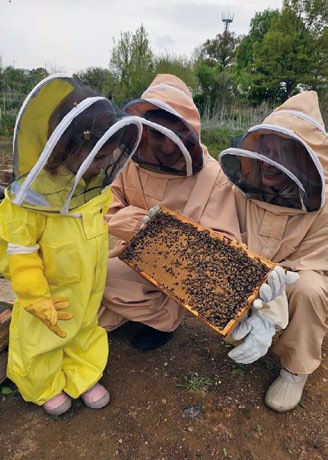
Comments